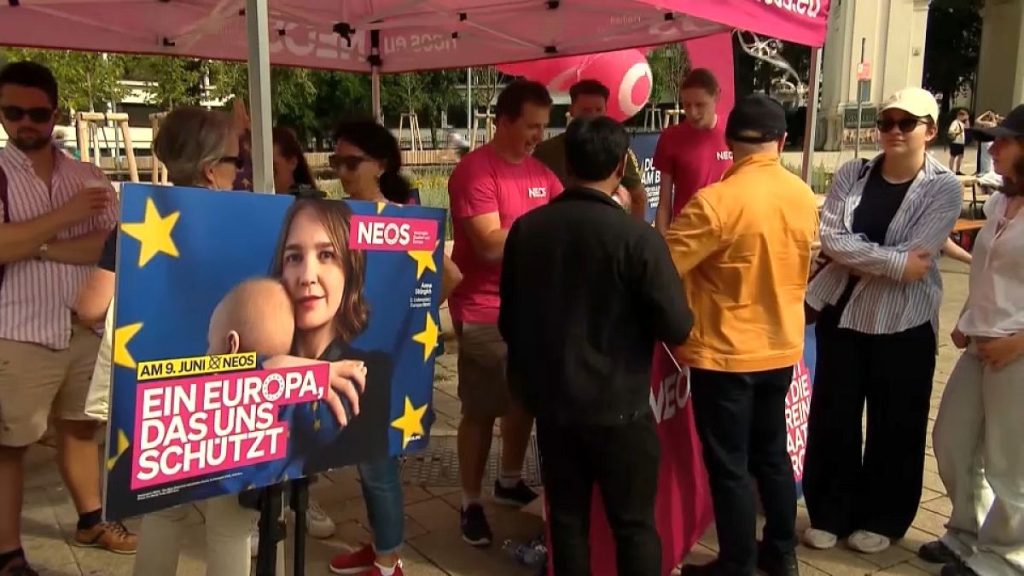Austria is gearing up for the European Parliament elections, with four main parties vying for seats this year. The conservative People’s Party, the OeVP, led by candidate Reinhold Lopatka, aims to take the most seats in parliament and make the centre-right European People’s Party the premier alliance in Europe. Lopatka has expressed anti-immigration views and believes cooperation with the Austrian Freedom Party is impossible due to their isolation in Europe. However, polls suggest the Freedom Party may take more seats, potentially pushing the OeVP into second place.
The Austrian Green Party, led by candidate Lena Schilling, has faced controversy after her text messages expressing dislike for the Greens were published. Despite the backlash, Schilling has been vocal in her criticism of politicians’ inaction on the climate crisis and advocates for proper climate protection, good social policy, and a feminist Europe. The press furore may have damaged her credibility, with some voters indicating they may not support her. Nevertheless, Schilling remains committed to fighting for her party’s values until the end.
The DNA party, led by Maria Hubmer-Mogg, is a newcomer on the political scene in Austria with an anti-establishment platform. Hubmer-Mogg gained attention for her anti-lockdown and anti-vaccination stance during the coronavirus pandemic. The right-wing populist party aims to counter World Health Organization influence, push for a tougher asylum policy, and stop the Austrian national bank’s digital currency. Hubmer-Mogg’s reputation as a doctor came under scrutiny, leading her to step down and quit her practice in Graz to avoid disciplinary proceedings.
Austria elects 20 MEPs to the European Parliament, an increase from the 19 seats it had in the previous election in 2019. This expansion is due in part to the UK’s redistribution of 73 seats following its withdrawal from the European Union. The upcoming EU elections in Austria have seen parties holding final campaign events ahead of voting on Sunday. With the OeVP, Austrian Freedom Party, Green Party, and DNA party competing for seats, the political landscape in the country is at a critical juncture. Each party is striving to make an impact and secure a strong representation in the European Parliament.
The race for MEP seats in Austria has intensified, with the different parties presenting contrasting visions for the future of the country and the European Union. Lopatka’s OeVP is focused on strengthening the centre-right alliance in Europe and addressing immigration issues, while the Austrian Freedom Party maintains a leading position in the polls with its anti-establishment stance. The Green Party, despite facing controversy, remains committed to fighting for climate protection and social issues. The DNA party, as a new entrant, is challenging the status quo with its populist platform and opposition to international influences.
As Austrian voters head to the polls, the outcome of the European Parliament elections will shape the country’s representation and influence in the EU. The choice between the established parties and the newcomer DNA party reflects a broader dynamic in European politics, with discussions around immigration, climate change, and sovereignty at the forefront. The results will not only determine the allocation of MEP seats but also set the tone for Austria’s role in addressing key challenges within the European Union.


